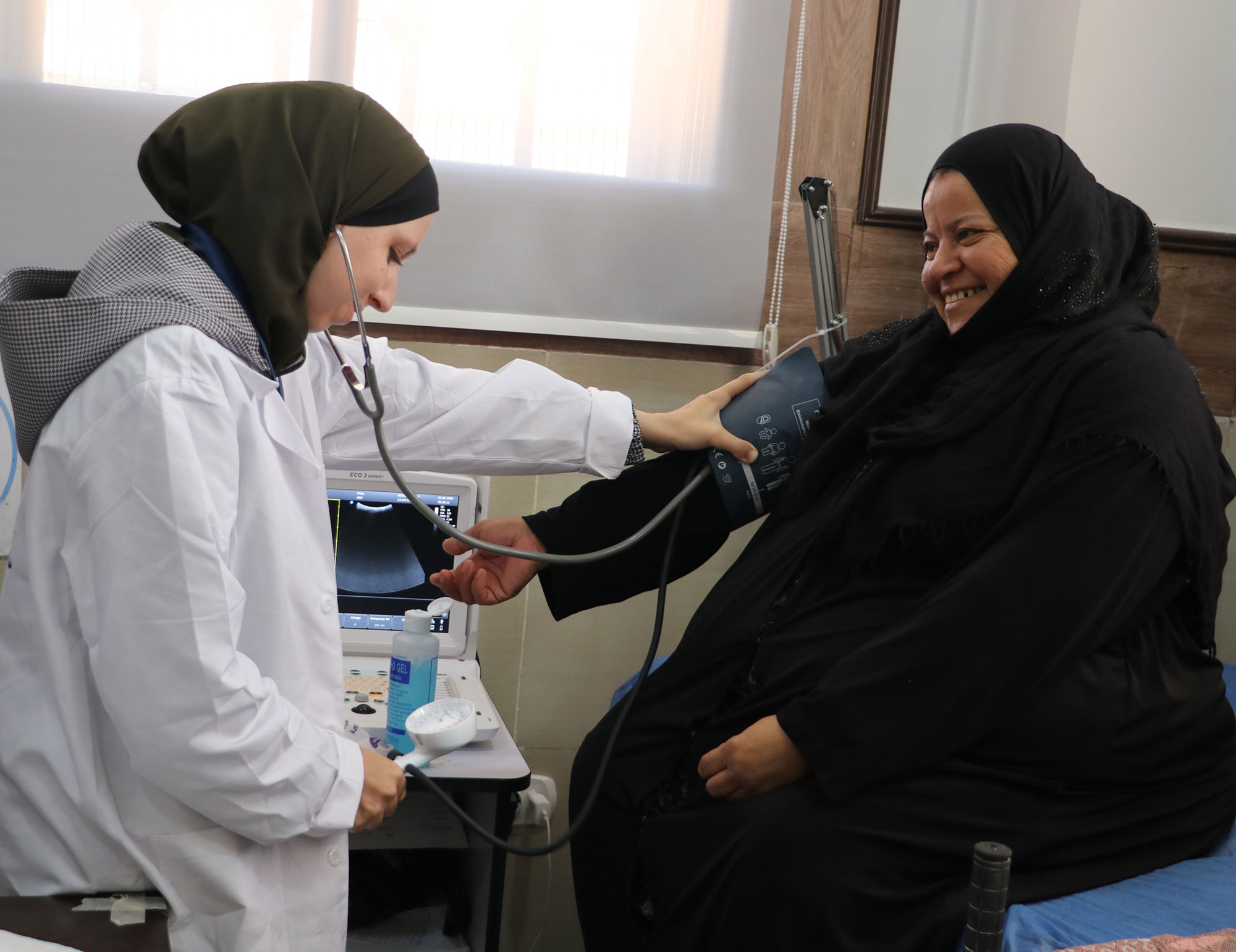 A health worker checks a patient’s blood pressure at Maskaneh Health Centre in rural Aleppo. The facility delivers primary health care services through a WHO-supported implementing partner, ensuring access to essential care for communities in hard-to-reach areas. Photo: WHO16 July 2025, Damascus, Syrian Arab Republic – The Government of Norway has contributed 10 million Norwegian kroner in flexible funding to support the World Health Organization’s (WHO) health response in Syria. This timely and strategic support comes at a critical moment, enabling WHO to respond swiftly to emerging health emergencies and continue essential recovery efforts to rebuild the country’s fragile health system.
A health worker checks a patient’s blood pressure at Maskaneh Health Centre in rural Aleppo. The facility delivers primary health care services through a WHO-supported implementing partner, ensuring access to essential care for communities in hard-to-reach areas. Photo: WHO16 July 2025, Damascus, Syrian Arab Republic – The Government of Norway has contributed 10 million Norwegian kroner in flexible funding to support the World Health Organization’s (WHO) health response in Syria. This timely and strategic support comes at a critical moment, enabling WHO to respond swiftly to emerging health emergencies and continue essential recovery efforts to rebuild the country’s fragile health system.
WHO remains committed to working closely with the Ministry of Health and health partners to ensure Syrians can access the health services they need. Sustained, flexible funding remains critical to maintain humanitarian health services while supporting early recovery and long-term health system strengthening efforts across the country.
“With Syria’s health system under immense strain, flexible funding like this from Norway is vital,” said Acting WHO Representative in Syria, Christina Bethke. “It allows us to allocate resources where they are most urgently needed – whether that is responding rapidly to disease outbreaks, providing trauma care in emergencies or strengthening services for women and children.”
“We are deeply grateful to Norway for this generous contribution,” added Bethke. “Their support comes at a critical time, helping us keep essential health services running and reach people with the care they need. Flexible funding like this also enables us to strengthen the health system for the future, so that Syrians can rebuild their lives with dignity and hope.”
More than 16.7 million people in Syria need urgent humanitarian health support. With only 57% of hospitals and 37% of primary healthcare centres fully functional, millions are at risk of preventable illness and death. Norway’s continued commitment enables WHO to maintain critical health services, support health system recovery and invest in long-term resilience.
“Support to inclusive health services and system strengthening are priorities for Norwegian assistance to Syria,” said ambassador Hilde Haraldstad, Chargée d’Affaires, Norwegian Embassy to Syria. “Reinforcing and strengthening the national health system is critical and WHO has an important role to play.”
Flexible funding from Norway complements its broader contributions to WHO’s work in emergencies globally. Norway also provides core resources to WHO’s Health Emergencies Programme, underpinning much of WHO’s capacity to prevent, prepare for and respond to crises. Norway’s annual support to the WHO Contingency Fund for Emergencies (CFE) was used in Syria in December last year, ensuring rapid life-saving interventions for affected communities.
Media contacts:
Halah Kabash,
This e-mail address is being protected from spambots. You need JavaScript enabled to view it
Mrinalini Santhanam,
This e-mail address is being protected from spambots. You need JavaScript enabled to view it




